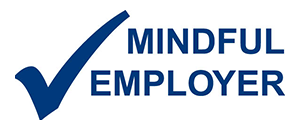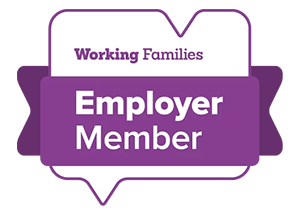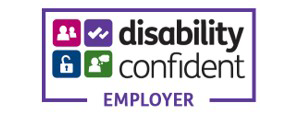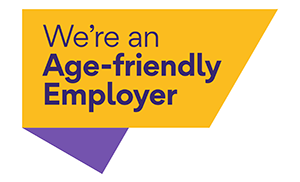Our mission is to help people in our Sussex communities live well and we want to do everything we can to overcome any barriers or inequalities that might be getting in the way of this for our clients, tenants, staff, and partner organisations.
Since 1972, we’ve championed the rights of our clients and supported equal opportunities among our employees. We are committed to providing people with the resources, support, choice, and control necessary to achieve their full potential. We will advocate for the people we work with and create an inclusive culture where difference is celebrated, voice is encouraged, and co-production is a natural way of working. We are proud of our achievements and the positive feedback we receive from external audits.
The principles of equality, equity, diversity and inclusion (EDI) are at the heart of Southdown’s reason for being. We believe that having a diverse workforce with lived experience that is representative of our clients and our broader Sussex communities will help us:
- Remain relevant to our clients
- Make better decisions
- Be more creative
- Be an employer and service provider of choice
This means making EDI part of our DNA and creating a truly inclusive culture where individuals feel a sense of belonging rather than a requirement to ‘fit in’. “This is Us” is our framework for delivering this ambition. We are continually learning and see this framework as a live document which will be updated as necessary to reflect best practice and the contributions of our people and partners to EDI in Southdown.
Our commitments to you
We pride ourselves on creating a culture that challenges prejudice and values diversity. We are committed to ensuring that all our employees and clients feel welcome and are not discriminated against or treated unfairly. We believe that direct or indirect discrimination is wrong and ensure that our policies and practices provide equal treatment for everyone. Adherence to our Equality, Diversity and Inclusion policy is a condition of employment, and a copy of the policy is given to all job applicants and employees.
In addition:
- We will comply with equality law and implement good practice in all aspects of employment.
- We will demonstrate clear leadership and good governance on EDI.
- We will work proactively and in partnership to advance EDI for our clients, staff and stakeholders.
- We will ensure our policy, strategy and legal context on EDI is consistently understood.
- We will provide mandatory e-learning for all colleagues. In addition, managers receive additional face-to-face training including training on how to recruit inclusively.
Our EDI priorities
- Improve our EDI evidence base and extend our insight.
- Broaden our EDI focus to include neurodiversity.
- Build leadership capability and diversity of leadership.
- Create a safe and just culture where ‘voice’ is encouraged and diversity of thought is welcomed – people should feel a sense of belonging in Southdown.
- Communication and engagement.
- Deliver inclusive services.
EDI Leadership Group
The EDI Leadership Group is a group of individuals in Southdown who are passionate about championing EDI and raising its profile.
They are responsible for:
- Raising awareness and building understanding e.g. invites members of staff to talk to the group about their experiences in order to inform action plan.
- Instigating and coordinating task and finish activity.
- Communicating key messages.
- Acting as a conduit between the business and senior leadership.
- Escalating issues that need decisions to the Leadership Team.
- Reviewing the quarterly monitoring report from the Leadership Team.
Making information accessible for clients of our services and their carers
Recognising that we all have varying communication needs, we are committed to following the Accessible Information Standard. The Standard sets out a specific, consistent approach to identifying, recording, flagging, sharing and meeting the information and communication support needs of service users and carers with a disability, impairment or sensory loss.
At Southdown, our frontline workers receive training on the Accessible Information Standard (where it is required by commissioned service contracts). In addition, it is embedded in the way we do things and our support approach.
See our most recent Gender Pay Gap Report:
Legislation
At Southdown we adhere to the following legislation:
The Human Rights Act 1998
This legislation has five main principles: Fairness, Respect, Equality, Dignity and Autonomy. The Act outlines basic human rights and principles of equality.
The Mental Capacity Act 2005
This legislation was put in place to help people who are unable to maintain their dignity, independence and right to freedom. To help vulnerable individuals maintain their right to dignity and equality, The Deprivation of Liberty Safeguards (DoLS) was put in place.
The Equality Act 2010
The Equality Act 2010 is the law that protects you from discrimination and gives you the right to challenge it.
The Act makes it unlawful to discriminate against someone on the grounds of any of these characteristics: age, disability, gender reassignment, marriage or civil partnership, pregnancy and maternity, race, religion/belief, sex (gender) and sexual orientation.
These are often referred to as protected characteristics.
Are mental health and neurodivergence covered under the Act?
The Equality Act says you have a disability if you have a physical or mental impairment that has a substantial, adverse, and long-term effect on your ability to carry out normal day-to-day activities.
In this way the definition of disability is broader than the usual way you might use it and neurodivergent individuals and those with mental health challenges are likely to meet the legal definition if they can show that it:
- has more than a small effect on everyday life.
- makes things more difficult for them.
- has lasted at least 12 months, is likely to last 12 months, or that it is likely to recur.
Types of Discrimination:
- Direct
- Indirect
- Harassment
- Victimisation
Direct discrimination
This occurs where a person is treated differently because he/she has protected characteristics (e.g. gender, race or sex).
Direct discrimination may even occur by association (where a person is treated differently because he/she is associated with a person who has a protected characteristic) or by perception (because a person appears to have a protected characteristic he/she is treated differently).
Direct discrimination may be failing to promote a person, dismissing them, or not employing them in the first place because of their protected characteristic.
Indirect discrimination
This form of discrimination is not as obvious and can be unintentional. Indirect discrimination occurs when an organisation has a policy, requirement or practice that appears to apply to all, but its effect in practice disadvantages a particular group of people with a protected characteristic.
Harassment
This occurs where the conduct or behaviour is unwanted and relates to one or more of the protected characteristics. The conduct must have the effect or purpose of violating a person’s dignity or creating a hostile, intimidating, degrading, humiliating or offensive environment for the person receiving it. Harassment can include name calling, threats, jokes, banter, being excluded, insults, and unwanted physical contact.
Victimisation
Victimisation happens when a person is treated differently because he/she has made an allegation of or supported a complaint of discrimination. It can even be where the person has given evidence relating to a complaint of discrimination, or raised a grievance concerning discrimination.
Making Reasonable Adjustments
There is a duty on an employer to make reasonable adjustments where an employee is deemed to have a disability in situations where the knowledge of the disability has been brought to the attention of the employer or where it is reasonable to assume the employer should have known of the disability.
If the disability affects the work of the person, for example leads to lower performance or poor timekeeping, the employer should consider reasonable adjustments after discussion with the employee or obtaining a medical report.
The Care Act 2014
This legislation underlines all work involving vulnerable adults. This includes helping adults give their consent for tailored support that is chosen by them.
Downloads
Selected Stories








